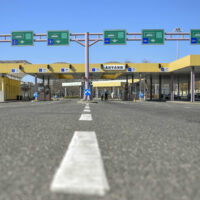Russian Political Aspects of Invading Ukraine
Sponsored content
The conflict of Ukraine and Russia has not started nowadays. Its roots go back to 1991 when the Soviet Union and the Warsaw Pact (which was a collective defense treaty established by the Soviet Union and other Soviet satellite states in Eastern and Central Europe) collapsed and disappeared. After 30 years Ukraine crossed “Russia’s red line”.
NATO and Russia had an agreement that NATO will not expand toward Russia’s territory
Czech Republic, Poland and Hungary were about to join the NATO, which caused a kind of concern to the Russian president, Boris Yeltsin, but he admitted that every country has the rights to take a position in an alliance it considers to be a better choice. Yeltsin also made a reference to the Two Plus Four Treaty pertaining to Germany’s reunification in 1990. “The spirit of the treaty,” he wrote, “precludes the option of expanding the NATO zone into the East.” [1]
After Yeltsin sent his letter, NATO has accepted 14 countries in Eastern and Southeastern Europe to join the alliance. Vladimir Putin complained: “You cheated us shamelessly”. [1]
MK 41 Rockets in Romania and Poland
To escalate the situation, NATO has deployed MK 41 missile shields in Romania and Poland what felt a serious threat to Russia’s security. Putin declared his warning over the missile shields, saying that Moscow had stated repeatedly that it would take retaliatory steps. Washington ignored the warnings. [2]
“We won’t take any action until we see rockets in areas that neighbor us.” – Putin added. He also thought about what would happen if Ukraine joined the NATO: does Russia want to protect the island of Crimea? Or would Russia have the right to oppose the deployment of rockets along the boundary? It would surely be dangerous because the problem could escalate between Russia and the NATO: MK 41 means real military threat to Russia, because Tomahawk rockets are capable of reaching Moscow.
US quitted from Anti-Ballistic Missile Treaty because of the emerging nuclear threat from Iran. They could not convince Putin of the abilities of these rockets: these were not just for defense purposes. In 2018 Putin announced the development of a series of new missile rocket systems and emphasized that those were designed as a response to U.S. withdrawal from the ABM Treaty. [4]
There are some interesting aspects to consider about Ukraine joining the NATO. First, Russians are still the biggest minority in Ukraine. Second, Ukraine’s modern economy was developed as an integral part of the larger economy of the Soviet Union so there are close economic ties between Ukraine and Russia, mostly in the field of mining. It is obviously against Russia’s interest to have US military present in Ukraine.
Who is Volodymyr Zelensky?
Volodymyr Zelensky, The President of Ukraine started an entertainment career as an actor playing in comedies. He began to produce, write, and sometimes star in trashy Russian comedies. In an interview with Der Spiegel in 2019, Zelensky announced he went into politics to restore trust in politicians and that he wanted “to bring professional, decent people to power”. Zelensky led a successful, almost entirely virtual campaign to unseat incumbent President of Ukraine Petro Poroshenko, in just four months.
Sources:
[1] https://www.spiegel.de/international/world/nato-s-eastward-expansion-is-vladimir-putin-right-a-bf318d2c-7aeb-4b59-8d5f-1d8c94e1964d
[2] https://www.reuters.com/article/us-russia-europe-shield-idUSKCN0YI2ER
[3] https://www.youtube.com/watch?v=axPqLuaYuf8
[4] https://en.wikipedia.org/wiki/Anti-Ballistic_Missile_Treaty
please make a donation here
Hot news
Hungarian government’s shocking new administrative fee proposal: Here is what to expect!
Hungarian government extends retail credit rate freeze by 6 months
More flights on the horizon: Budapest and this immensely popular Asian country to deepen aviation ties
Border controls to disappear between Hungary and Romania: Key steps towards Schengen have been taken
Hungarian government implements two-year moratorium on Airbnb in Budapest to address housing crisis
Hungary’s income decline: 8 in 10 citizens fall behind European peers



